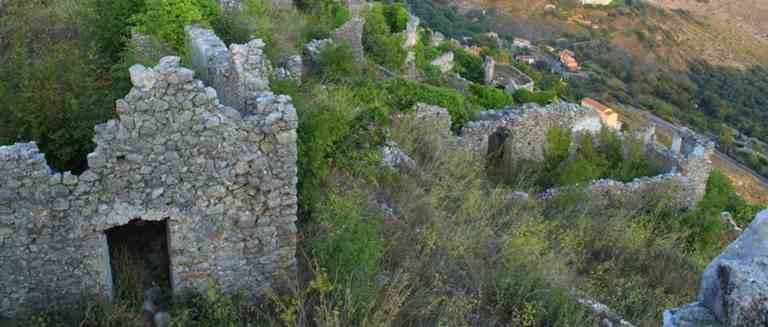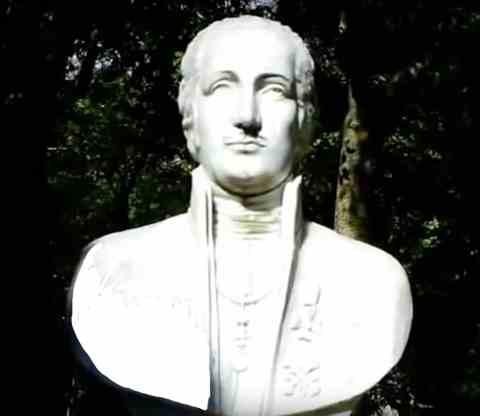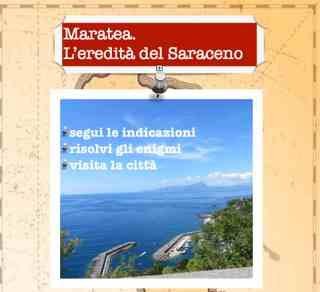The resistance of Maratea and the '800
Il sito www.maratea.info è aggiornato dai volontari di ALTRITURISMI.it
FAI UNA DONAZIONE
- Per essere aggiornato sulle attività di AltriTurismi ETS -> Iscriviti alla newsletter
CACCIA AL TESORO
Un nuovo e divertente modo di esplorare la città
UN' AVVINCENTE CACCIA AL TESORO
che unisce nel divertimento tutta la famiglia
MARATEA. L'EREDITA' DEL SARACENO
the French

After the proclamation of Joseph Bonaparte as King of Naples, on March 30, 1806, bands of legitimist troops opposed a disorganized but courageous resistance to the Napoleonic advance in the Kingdom of Naples.
After the terrible massacre of Lauria in August 1806, in December of the same Maratea suffered the siege carried out by General Jean Maximilien Lamarque, who with 4,000 men and four cannons appeared at the gates of the "Castle", at that time defended by the Colonel marateota Alessandro Mandarini.
Alessandro Mandarini

Il sito www.maratea.info è aggiornato dai volontari di ALTRITURISMI.it
FAI UNA DONAZIONE
- Per essere aggiornato sulle attività di AltriTurismi ETS -> Iscriviti alla newsletter
THE ASSEDIUM AND THE BATTLE
The history of the siege is well portrayed by the historian Lucano Giacomo Racioppi in his "History of the Peoples of Basilicata and Lucania":
"On December 4th, once the artillery was posted on the next heights, surrounded the square on three sides, he intends to keep any possible communication for the land route.
He intimate the surrender, which is rejected; and the offense begins; which becomes more lively and effective, when two more large caliber guns come from Lagonegro, and from Sapri the Colonel Pignatelli-Cerchiara with five hundred soldiers, who will have to face the partisans gathered in Castrocucco under the command of Major Giuseppe Necco, and to the other coming of the countries around Sicignano, led by a Tommasini.
These scattered bands of partisans try to help the besieged by sea on day 7; but one of their boats, with forty spirits, does not touch the shore that is taken, and the dead ones or prisons. Meanwhile, the artillery of the besiegers continues to fight the towers that defend the castle gate; a surprise assault is attempted on the night of 8; while from the barrels of the powders a mine is exploded.
The coup d'état does not succeed, and they leave not a few dead and wounded at the foot of the walls.
Even the works of approach and the abundant and living offense take away the garrison, which is of people, for the most part, collected, and badly stocked in war and mouth munitions; waves bend ear to the new and more honest proposals of the general who was in a hurry and in need of proceeding further; and accept an honorable surrender. For which, after the castle was sold, the soldiers of the order embarked for Sicily; and the partisans of the mass gangs come to the church of Maratea, where, among solemnly ordained rites of the religious offices and a parish priest's sermon, they swear an oath on the image of Christ, who would never have taken up arms against the French and were sent free.
This was December 10th.
The Sicilian statues, under the command of Tommasini, passed to the victor's services: Alessandro Mandarini did not want, even made a sign of special flattery, but retired to Sicily, where he lived honestly in Cefalù, until the Bourbon restoration did not raise the his fortunes. "
Il sito www.maratea.info è aggiornato dai volontari di ALTRITURISMI.it
FAI UNA DONAZIONE
- Per essere aggiornato sulle attività di AltriTurismi ETS -> Iscriviti alla newsletter
THE END OF MARATEA SUPERIOR
If Mandarini obtained the salvation of the city and the inhabitants, nothing could prevent the French's claim to demolish the walls and towers of the "Castle": the so-called Upper Maratea, mutilated by its artificial fortifications, was rapidly depopulated, and already in 1808 the ancient city was degraded to a fraction of the "Borgo", since then the only municipal capital.
In the same period, Maratea also acquired the uninhabited territory of Castrocucco, thanks to the laws of subversion of feudalism carried out by the French.
The hard blow suffered by the French siege did not affect Maratea's commercial fortunes very much: up to the Unification the city was an important maritime port, as well as a producer of wine, oil and wool.
THE RENAISSANCE
In 1820 carbonare sales spread, among which we remember that of August 17, which took place in the presence of the parish priest D'Alitto, in which the revolutionary marauders swore loyalty to the national constitution.
On July 4, 1848, the revolutionary Costabile Carducci was forced to a makeshift landing on the beach of Porticello di Acquafredda, blocked by a storm that prevented him from continuing his journey to the Cilento. Discovered by pro-Bourbon assassins from nearby Sapri, he was captured, tortured and killed on the same day, along the path that goes up into the mountains behind the village.
Raffaele Ginnari, Carducci's partner, in 1860 promoted the establishment of an insurrectional committee for the unification of Italy also in Maratea. The same city provided four men to the Southern Army of Giuseppe Garibaldi, who had crossed the Maratea coast by boat on 3 September.
continue in The Twentieth century




